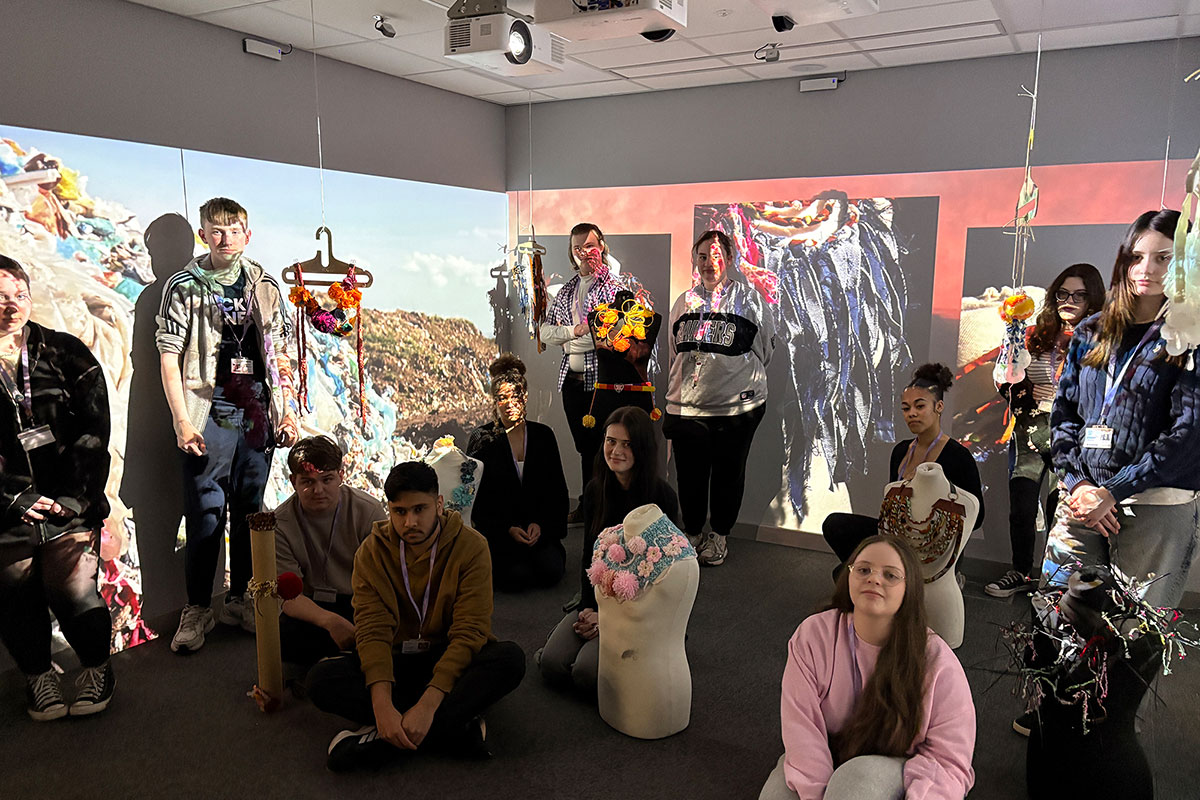Ofsted’s Big Listen: Sector Reaction

The sector reacts to Ofsted’s Big Listen.
ASCL comment on Ofsted’s ‘big listen’:
Responding to Ofsted Chief Inspector Sir Martyn Oliver’s launch of the ‘big listen’ and the focus on championing high standards for all children, especially the most disadvantaged and vulnerable, Geoff Barton, General Secretary of the Association of School and College Leaders, said:
“We welcome the ‘big listen’ as an important step in resetting the broken relationship between Ofsted and the schools and colleges it inspects. It is vital that the inspectorate wins back the confidence of leaders and teachers who at present regard it as unnecessarily harsh, punitive and inconsistent. Sir Martyn Oliver has already signalled a change of tone, and this has been well received – but the proof of the pudding is in this translating to a better and fairer system.
“The focus on putting the interests of disadvantaged children at the heart of the future reforms is also very welcome. This is a huge priority for school and college leaders and their staff already. It is important that Ofsted shows sufficient self-awareness that the inspectorate has itself been part of the problem – because its negative judgements stigmatise schools and make it harder to recruit and retain the staff they need to secure improvement for all their pupils, and particularly those facing the greatest challenges.
“We have repeatedly called for the current system of graded judgements – where everything a school does is reduced to a single phrase – to be scrapped and replaced with a narrative description which is more informative for parents and more supportive to schools that need additional support. This is not, however, something that Ofsted can implement but needs to come from the government. We hope they are also listening.”
David Hughes, Chief Executive, Association of Colleges, said:
“I am pleased to see Martyn Oliver launch the Big Listen today, and whilst I appreciate that a large area of focus has to be on children, the work colleges do with young people and adults must not be overlooked. Education and training have a vital role in setting people up for life, but also for helping people navigate a changing world and new challenges. Colleges have a unique role across children, young people, adults, skills and working with employers which Ofsted has to learn to both understand and appreciate.
“At AoC, we will work with our members to ensure that the college perspective is heard through the consultation period and beyond. Ofsted has a wide remit, and we want to help support Martyn Oliver lead the cultural change we believe is needed and support inspectors to fully understand the complexity of the college work. We will be submitting a full response in collaboration with our members. I have been impressed in my initial meetings with Martyn Oliver about his recognition of that cultural change Ofsted needs to go through to ensure it can support colleges to continually improve.”
Daniel Kebede, General Secretary of the National Education Union, said:
“We are a long way away from Ofsted fixing its reputation. Only root and branch reform will end the tyranny of the inspection regime and the climate of fear it creates. Anything short of that will amount to rebranding rather than reform.
“The NEU believes that Ofsted is not fit for purpose and must be replaced with a new system of inspection that is supportive, effective and fair, like the one proposed by the recent Beyond Ofsted inquiry. Bringing expertise rather than judgment would help protect the well-being of teaching staff, which would in turn help ensure children and young people from all backgrounds thrive in school.
“To only point out what schools are not doing when they do not have the resources to do what is needed – including support for SEND – is both unhelpful and damaging.”
Paul Whiteman, general secretary at school leaders’ union NAHT, said:
“We welcome the chief inspector’s openness to change at Ofsted and are hopeful this consultation will build on our early conversations about the fundamental reform which is so desperately needed.
“The current inspection regime has caused untold harm to the mental health and wellbeing of school leaders and their staff, adding to stress and workload while often failing to give a fair or balanced judgement on schools’ strengths and weaknesses.
“School leaders are passionate about helping all children, including the most vulnerable, to flourish. Ofsted has too often hindered rather than helped them in this mission.
“We have already made a strong case for a series of positive recommendations for change in our recent report Rethinking School Inspection. We are clear that far-reaching reform is needed, including an end to the blunt single-word grades which can cause so much damage to schools and their staff.
“It is vital that the views of school leaders are heard properly during this listening exercise and the responses of representative organisations such as the NAHT are given due weight. Even more important is that they are acted upon quickly by Ofsted and the government.”
Paul Whiteman, general secretary at school leaders’ union NAHT, said: “We welcome the chief inspector’s openness to change at Ofsted and are hopeful this consultation will build on our early conversations about the fundamental reform which is so desperately needed.
“The current inspection regime has caused untold harm to the mental health and wellbeing of school leaders and their staff, adding to stress and workload while often failing to give a fair or balanced judgement on schools’ strengths and weaknesses.
“School leaders are passionate about helping all children, including the most vulnerable, to flourish. Ofsted has too often hindered rather than helped them in this mission.
“We have already made a strong case for a series of positive recommendations for change in our recent report Rethinking School Inspection. We are clear that far-reaching reform is needed, including an end to the blunt single-word grades which can cause so much damage to schools and their staff.
“It is vital that the views of school leaders are heard properly during this listening exercise and the responses of representative organisations such as the NAHT are given due weight. Even more important is that they are acted upon quickly by Ofsted and the government.”
Dr Patrick Roach, General Secretary of NASUWT – The Teachers’ Union, said:
“For too long Ofsted has been part of the problem of teacher demoralisation, stress and wastage. The new Chief Inspector has the opportunity to become part of the solution if he is willing not only to listen but also to act to support the work of schools in providing the high quality education that children deserve.
“Nothing is more important to children’s education than the work of teachers in the classroom.
“But in our recent National Teacher Poll, Ofsted and the associated pressures of inspection were cited as the number one drivers of excessive workload for classroom teachers. It should never have come to this. Mountains of bureaucracy and unfair criticism of schools do nothing to raise standards for pupils.
“Skyrocketing workloads and work-related stress have catapulted the profession into a teacher recruitment and retention crisis which is damaging children’s education.
“Our hardworking and dedicated teachers deserve more than fine words from the Chief Inspector. They deserve better support and a better deal.”











Responses